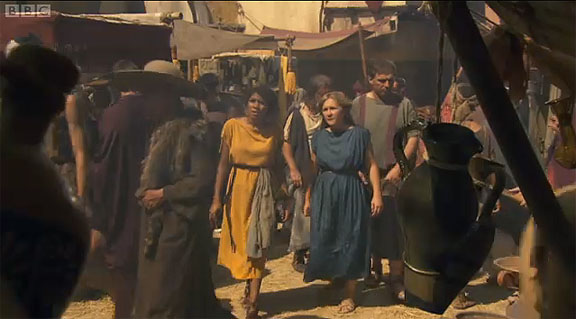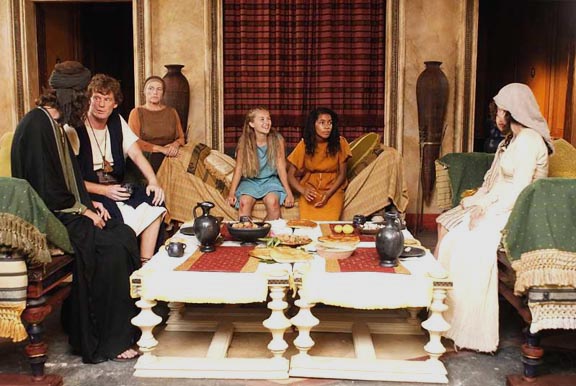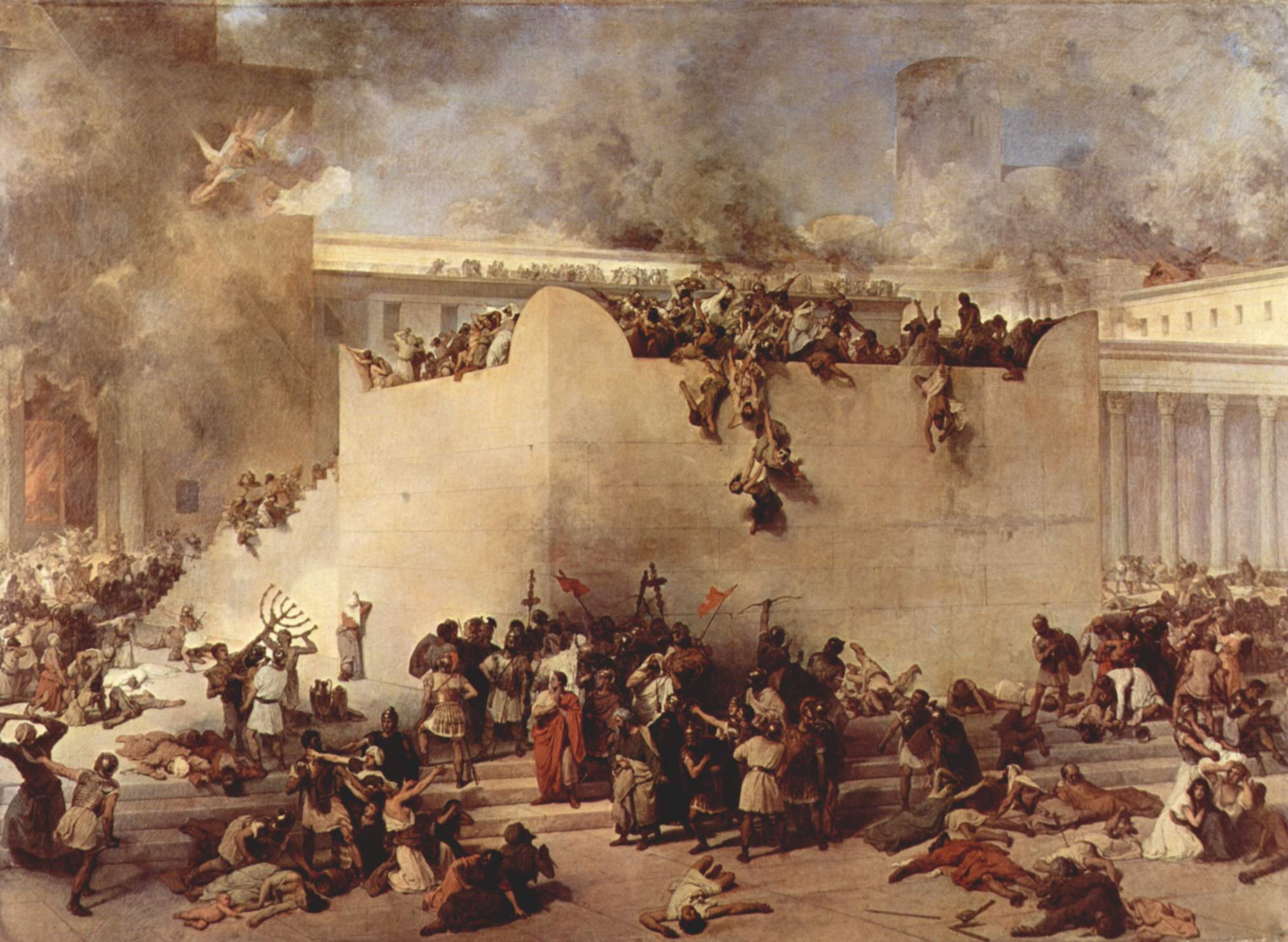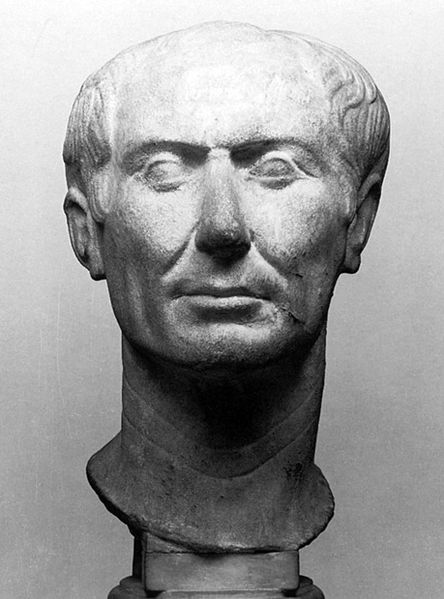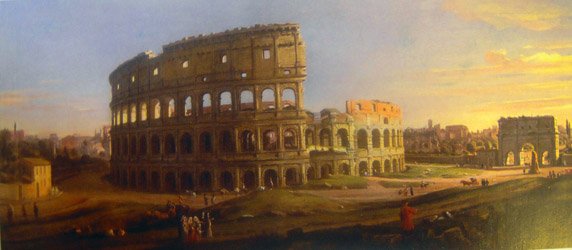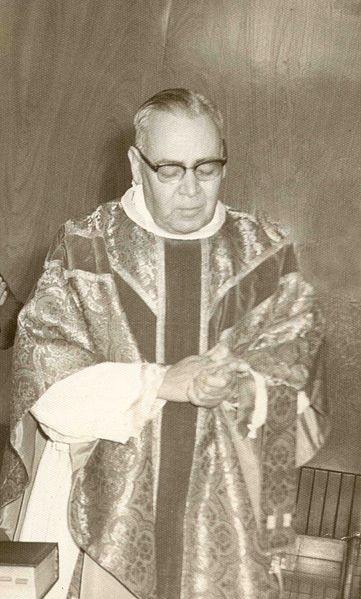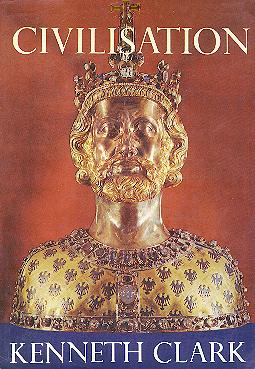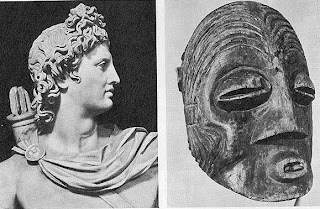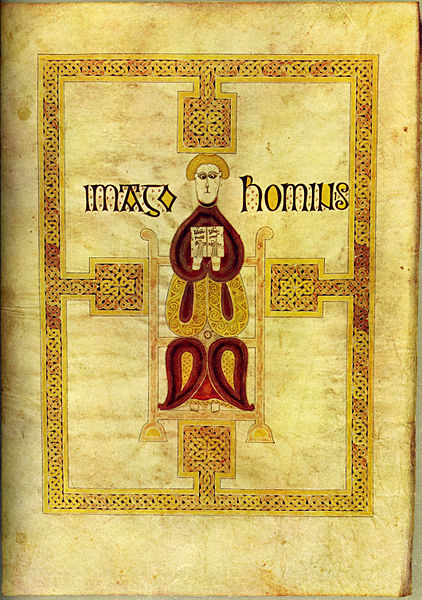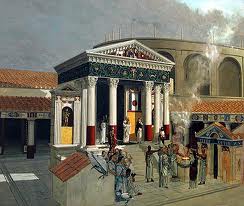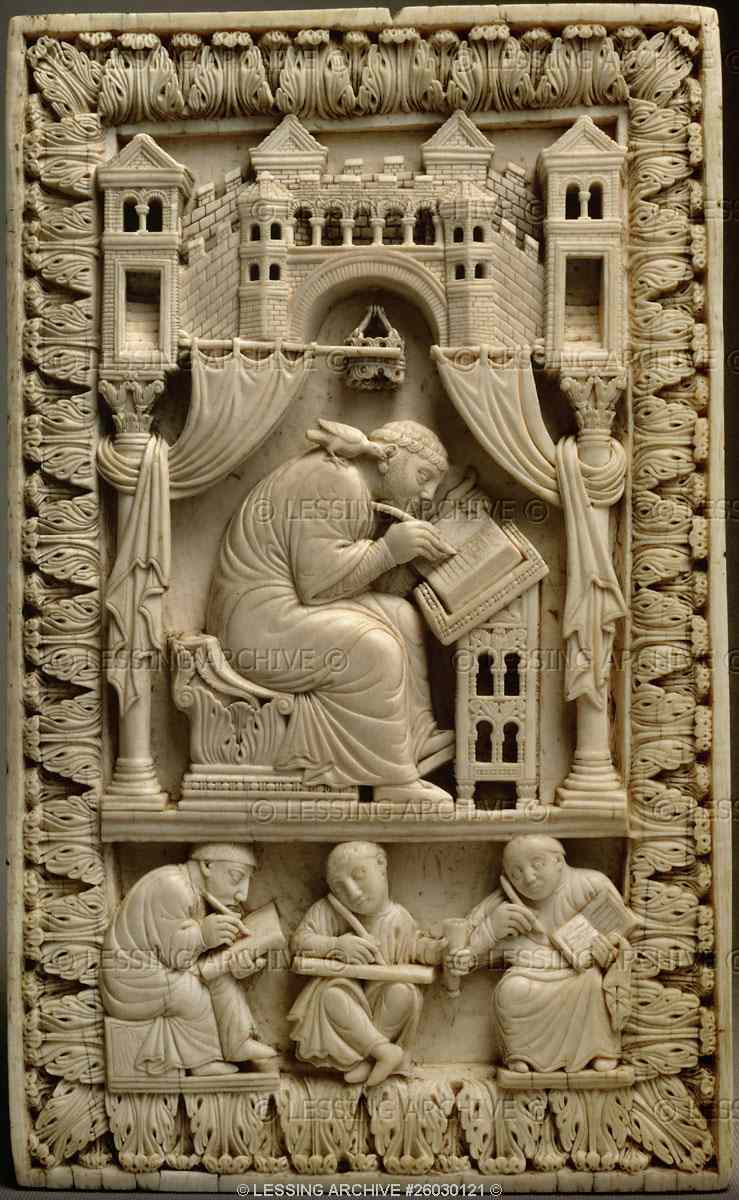Excerpted from the 13th article of William Pierce’s “Who We Are: a Series of Articles on the History of the White Race”:
The Romans were an energetic and martial people, and the power, influence, and wealth which they wielded grew enormously during the period from the end of the sixth to the last quarter of the first century B.C., the life-span of the Republic. First all of Italy, then the rest of the Mediterranean world and the Middle East, and finally much of Nordic Europe came into their possession.
This vast area under Roman rule was inhabited by a great diversity of races and peoples. As time passed, the rights of citizenship were extended to more and more of them. Citizens or not, there was a huge influx of foreign peoples into Rome and the other parts of Italy. Some came as slaves, the spoils of Rome’s victorious wars, and many came voluntarily, attracted by Rome’s growing wealth.
After the Republic became the Empire, in the last quarter of the first century B.C., the flow of foreigners into Italy increased still further. The descendants of the Latin founders of Rome became a minority in their own country. Above all other factors, this influx of alien immigrants led to Rome’s demise and the extinction of the race which built her into the ruler of the world.
Medley of Races
The importance of the immigration factor is, of course, barely mentioned, if at all, in the school history texts being published today, because those who control the content of the textbooks have planned the same fate for White America as that which overtook White Rome.
Nevertheless, the writers of Classical antiquity themselves clearly recognized and wrote about the problem, as do those few of today’s professional historians with courage enough to buck the blackout on the mention of race in history. An example of the latter is the distinguished Swedish historian Martin Nilsson, for many years professor at the University of Lund.
In his Imperial Rome, Nilsson wrote:
Of greater variety than elsewhere was the medley of races in the capital, where individuals congregated from all quarters, either on business with the rulers and the government or as fortune seekers in the great city, where great possibilities were open to all. It is almost impossible for us to realize the extraordinarily motley character of the Roman mob. The only city in our own day which can rival it is Constantinople, the most cosmopolitan town in the world. Numerous passages in the works of Classical authors refer to it, from Cicero, who calls Rome a city formed by the confluence of nations, to Constantius, who, when he visited Rome, marveled at the haste with which all the human beings of the world flocked there…
There were Romans who viewed the population of the capital with deep pessimism. In Nero’s time (37-68 A.D.) Lucan said that Rome was not peopled by its own citizens but filled with the scourings of the world. The Oriental [by Oriental, Nilsson means Levantine, not Mongoloid] element seems to have been especially strong.
The Eternal Jew
Jews, in particular, in order to get their hands on the wealth there, flocked to Rome in such enormous numbers that Emperor Tiberius, under pressure from the common people on whom the Jews were preying, was obliged to order them all deported in 19 A.D. The Jews sneaked back in even greater numbers, and Tiberius’ brother, Emperor Claudius, was forced to renew the deportation order against them a few years later, but without success. They had become so numerous and so well entrenched that the emperor did not have the energy to dislodge them.
Another distinguished historian, the late Tenney Frank, professor at Bryn Mawr and Johns Hopkins, made a careful survey of Roman tomb inscriptions. He studied 13,900 inscriptions, separating them into categories based on the ethnicity or probable ethnicity indicated by the names and corollary evidence. Professor Frank estimated that by the end of the first century A.D. 90 per cent of the free plebeians in Rome were Levantines or part-Levantines. Fewer than ten per cent could claim unmixed Italian ancestry, and of the seven fewer were of pure Indo-European stock.
One problem which Frank ran into was the tendency of non- Italians to disguise their ancestry by changing their names. It was easy enough to separate Greek and Syrian and Hebrew names from Latin ones, but a Latin name which had been adopted rather than inherited could often only be detected by noting the non-Latin names of the parents on the same tomb. Then too, just as Jewish name-changers today often give themselves away by choosing a non-Jewish first name which has become so popular among their brethren that few non-Jews would dream of burdening their own children—with it (Murray, Seymour, Irving are examples), Frank found the same clues among many “Latin” names.
As for the Greek names, the great majority of them did not belong to Hellenes but to Levantines from the remnants of Alexander’s Oriental empire.
C. Northcote Parkinson, the noted author and historian, sums up the effect of centuries of uncontrolled immigration in his East and West (1963): “Rome came to be peopled very largely by Levantines, Egyptians, Armenians, and Jews; by astrologers, tipsters, idlers, and crooks.”
The name “Roman,” in other words, came to mean as little as the name “American” is coming to mean today.
And yet, just as White Americans are bringing about their downfall through greed and timidity and indifference, so did Rome’s patricians cause their own end.

